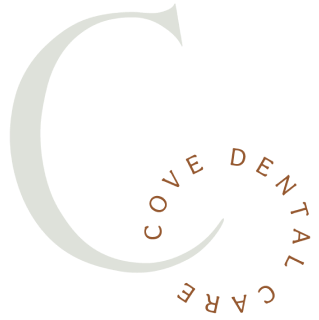2104 Old Spartanburg Rd Greer, SC 29650

Restoring Smiles Beautifully In Greer, SC
If you're considering dentures in Greer, SC, you're likely curious about what the process involves. Dr. Adam Carraway offers both full and partial dentures to his patients, providing options for replacing missing teeth. Modern dentistry offers various types of dentures thanks to advancements in dental implant technology.
Throughout the denture process, Dr. Carraway prioritizes your comfort and satisfaction. Whether you're opting for full or partial dentures, understanding what to expect can help ease any concerns you may have. From the initial consultation to the final fitting, each step is designed to ensure a positive experience and excellent results.
If you're interested in learning more about the denture process in Greer, SC, continue reading to discover what it entails and how Dr. Carraway can assist you in achieving a confident smile.
How Do Dentures Work?
Why Would I Need a Dental Bridge?
Difficulty chewing and speaking:
Shifting of adjacent teeth:
Gum disease and tooth decay:
Changes in facial structure:
The absence of teeth can lead to facial structural changes, potentially aging your appearance.
A dental bridge offers solutions by restoring teeth function and aesthetics, improving bite and speech, and preventing remaining teeth from shifting. It also aids in distributing bite forces evenly, reducing additional wear on teeth.
Your dentist can assess your specific needs and oral health status to determine if a dental bridge is the suitable treatment option for you.
What Is a Partial?
Types of Dentures and Benefits of Each
Complete Dentures: A Full Smile Restoration
Benefits of Complete Dentures:
Restored Aesthetics: Complete dentures offer patients a full set of teeth, enhancing their facial appearance and reinstating a natural smile.
Improved Speech: Missing teeth often result in speech difficulties. Complete dentures aid patients in articulating words more clearly, facilitating better communication.
Enhanced Chewing Function: With a complete set of teeth, patients regain the ability to enjoy a wider variety of foods, maintaining proper nutrition.
Support for Facial Muscles: Dentures provide crucial support to facial muscles, preventing the sagging or sunken appearance that may occur due to tooth loss.
Affordability: Complete dentures present an affordable solution for individuals requiring extensive tooth replacement.
Partial Dentures: Bridging the Gap
Benefits of Partial Dentures:
Natural Appearance: Partial dentures seamlessly blend with natural teeth, improving overall appearance.
Enhanced Chewing Ability: Partial dentures fill in gaps from missing teeth, restoring the ability to chew and enjoy a broader range of foods.
Prevent Shifting: Partial dentures prevent adjacent natural teeth from shifting into the gaps left by missing teeth, maintaining proper dental alignment.
Preservation of Natural Teeth: By supporting and stabilizing existing teeth, partial dentures help preserve oral health.
Implant-Supported Dentures: Combining Stability and Functionality
Benefits of Implant-Supported Dentures:
Enhanced Stability: Implants ensure dentures remain stable during speech and eating, offering a more secure fit.
Improved Chewing Efficiency: Enhanced stability allows patients to bite and chew more effectively, expanding their dietary options.
Preservation of Jawbone: Implants stimulate the jawbone, averting the bone loss associated with conventional dentures.
Natural Look and Feel: Implant-supported dentures closely resemble and function like natural teeth, fostering increased confidence and comfort.
Longevity: With adequate maintenance, implant-supported dentures boast greater durability compared to traditional dentures.
Immediate Dentures: Instant Gratification
Benefits of Immediate Dentures:
No Toothless Period: Patients do not have to experience the social and functional challenges of being without teeth during the healing phase.
Natural Healing: Immediate dentures help protect the extraction sites and promote proper healing.
Smile Confidence: Patients can maintain their smile and appearance without interruption.
Snap-On Dentures: Versatile and Secure
Benefits of Snap-On Dentures:
Improved Stability: Snap-on dentures offer superior security compared to conventional removable dentures, ensuring enhanced retention.
Jawbone Preservation: Dental implants integrated into snap-on dentures stimulate the jawbone, mitigating bone loss.
Convenient Maintenance: Snap-on dentures are easily removable for cleaning, simplifying oral hygiene routines.

